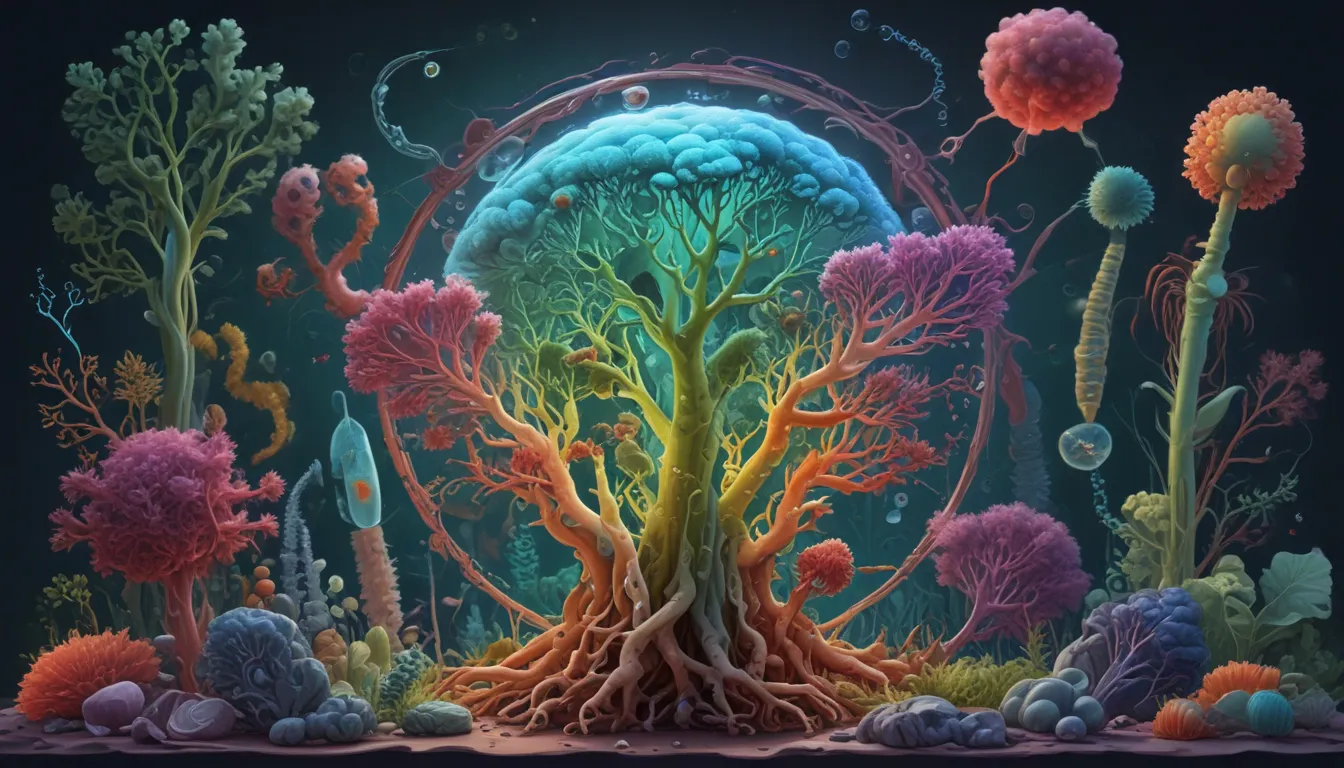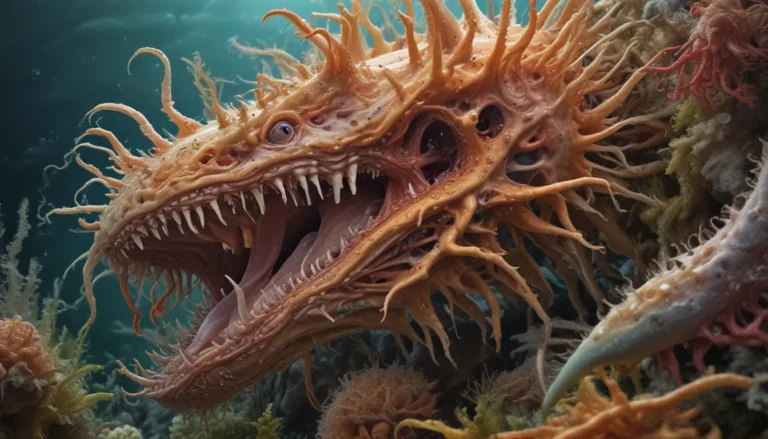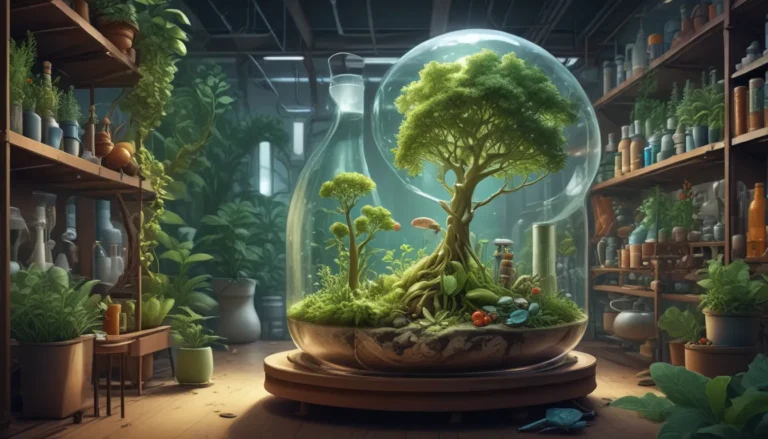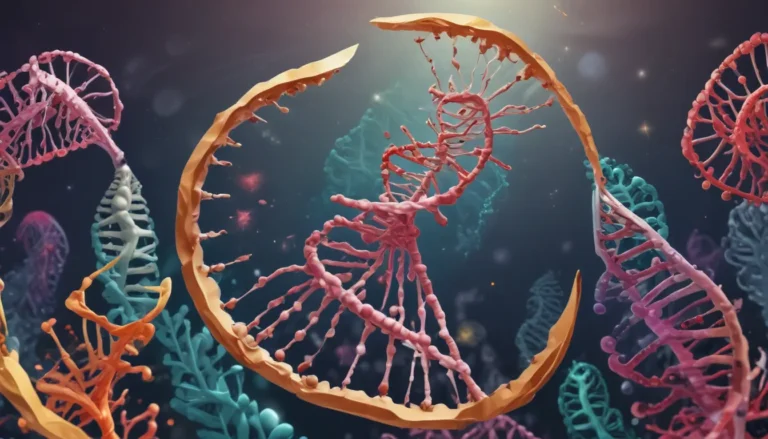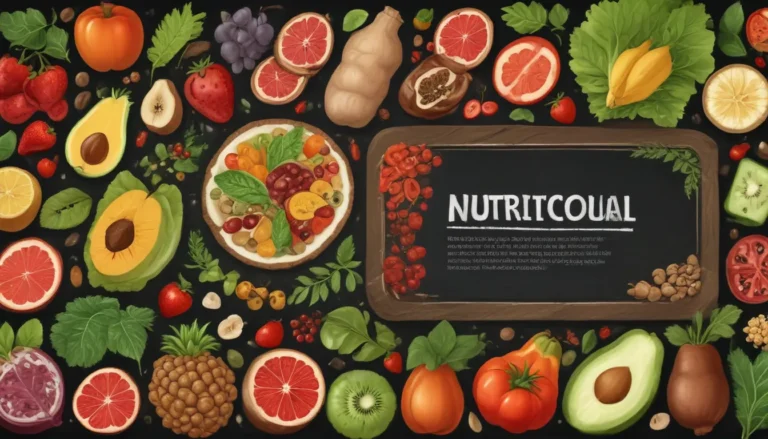A Note About Images: The images used in our articles are for illustration purposes only and may not exactly match the content. They are meant to engage readers, but the text should be relied upon for accurate information.
Microbial biotechnology, a captivating field that harnesses the potential of microorganisms for various applications, has been shaping our world for centuries. From life-saving drugs to sustainable agriculture practices, microbes like bacteria, fungi, and viruses play a pivotal role in scientific advancements. In this article, we will delve into nine captivating facts about microbial biotechnology, showcasing its significance in modern research and its potential for future developments.
Microbial Biotechnology: The Unsung Hero of Science
- Microbial biotechnology acts as a superhero for medicine, agriculture, and the environment, unleashing its potential to create life-saving drugs, boost crop growth, and clean up pollution.
- Microbes are powerful entities that contribute to the production of food, fuel, and environmental cleanup, showcasing the incredible applications of microbial biotechnology.
Microbial Biotechnology: Transforming Medicine
Microbial biotechnology has revolutionized modern medicine by enabling the development of life-saving drugs through genetic engineering and manipulation of microorganisms. This technology has paved the way for the production of essential medications such as insulin, growth hormone, and vaccines, leading to more effective treatments and improved patient outcomes.
Microbial Biotechnology: Nature’s Tiny Factories
Microorganisms serve as nature’s tiny factories, capable of producing valuable substances through microbial biotechnology. By harnessing the power of microbes, we can manufacture enzymes, biofuels, bioplastics, and food ingredients in a sustainable manner. This approach not only reduces our dependence on fossil fuels but also minimizes carbon emissions associated with traditional manufacturing processes.
Enhancing Agriculture through Microbial Biotechnology
Microbial biotechnology has transformed the agricultural industry by offering innovative solutions to improve crop productivity and resilience. By utilizing beneficial microbes, scientists can develop biofertilizers and biopesticides that promote plant growth and protect crops from pests and diseases. This eco-friendly approach reduces the reliance on chemical inputs, making agriculture more sustainable and environmentally friendly.
Microbial Biotechnology: The Cleanup Crew for the Environment
Microbial biotechnology holds great promise in environmental remediation by utilizing microorganisms to break down and degrade pollutants such as oil spills, toxic chemicals, and industrial waste. Through bioremediation, these microbes assist in restoring contaminated sites and mitigating the environmental impact of human activities, contributing to a cleaner and healthier planet.
Sustainable Waste Management with Microbial Biotechnology
Microbes play a crucial role in waste management processes through anaerobic digestion, where organic waste is converted into biogas, a renewable energy source. Additionally, microbial biotechnology enables the production of compost from organic waste, serving as a nutrient-rich soil amendment. These sustainable practices help divert waste from landfills and reduce greenhouse gas emissions.
Fueling Innovation in the Food Industry
Microbial biotechnology plays a significant role in food production and processing by facilitating the fermentation of dairy products, bread, beer, and the production of probiotics and food additives. This technology also enables the development of alternative protein sources, addressing global food security challenges and promoting nutritious and flavorful foods.
Driving Sustainable Energy Solutions with Microbial Biotechnology
In the pursuit of sustainable energy sources, microbial biotechnology offers a promising solution through microbial fermentation to produce biofuels like ethanol and biodiesel from renewable feedstocks. These biofuels serve as cleaner alternatives to fossil fuels, reducing greenhouse gas emissions and fostering a greener future for energy production.
Pushing the Boundaries of Bioremediation Techniques
Microbial biotechnology has significantly advanced bioremediation techniques by genetically engineering microbes to enhance their pollutant-degrading capabilities. This innovation enables more efficient removal of contaminants from the environment, addressing complex pollution challenges and restoring ecosystems impacted by industrial activities.
Microbial Biotechnology: The Bedrock of Scientific Research
Microbial biotechnology serves as a cornerstone for scientific discovery by offering insights into biological processes and providing research tools such as recombinant DNA technology and gene editing techniques. Microorganisms act as model organisms for studying genetics, molecular biology, and biochemistry, driving advancements in the life sciences field.
Conclusion: Embracing the Potential of Microbial Biotechnology
Microbial biotechnology presents an exciting frontier with vast potential for addressing global challenges and improving quality of life. As scientists continue to explore the capabilities of microorganisms, we can anticipate groundbreaking developments in various sectors, from agriculture to healthcare and environmental conservation.
The captivating facts about microbial biotechnology underscore its transformative impact on society and the environment. This dynamic field is propelling us towards a healthier and more sustainable future, where the power of microorganisms is harnessed for the greater good.
Final Thoughts
Dive deeper into the world of microbial biotechnology to uncover its endless applications and innovations. Explore the realms of bioremediation, genetics, and synthetic biology, where microbes pave the way for groundbreaking discoveries. Stay curious and engaged with the latest developments in microbial biotechnology to witness the ongoing evolution of this remarkable field.
Was this information helpful?
Our commitment to delivering accurate and engaging content is unwavering, with each fact contributed by real users like you to ensure diverse insights and information. With dedicated editors meticulously reviewing each submission, you can trust in the authenticity and reliability of the knowledge we share. Join us on this journey of discovery and learning, as we continue to explore the fascinating world of microbial biotechnology.
